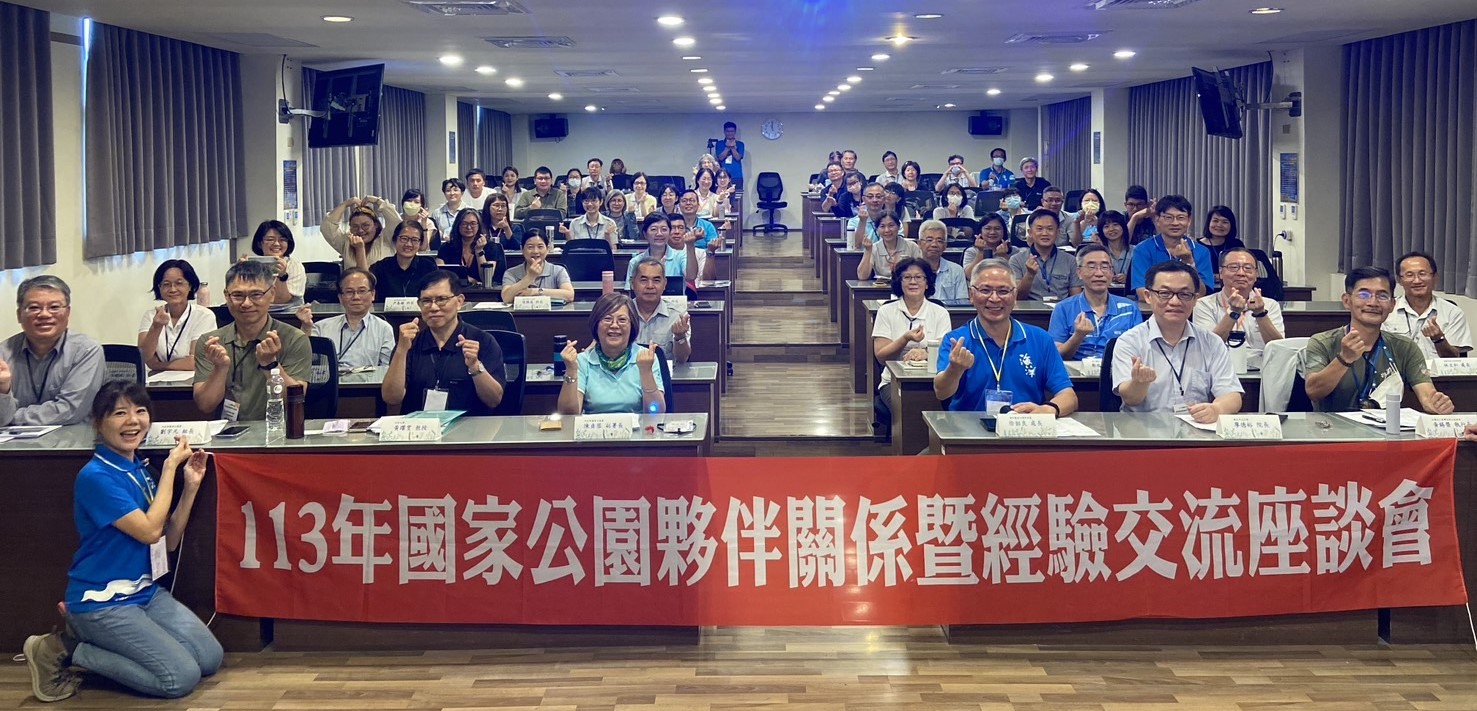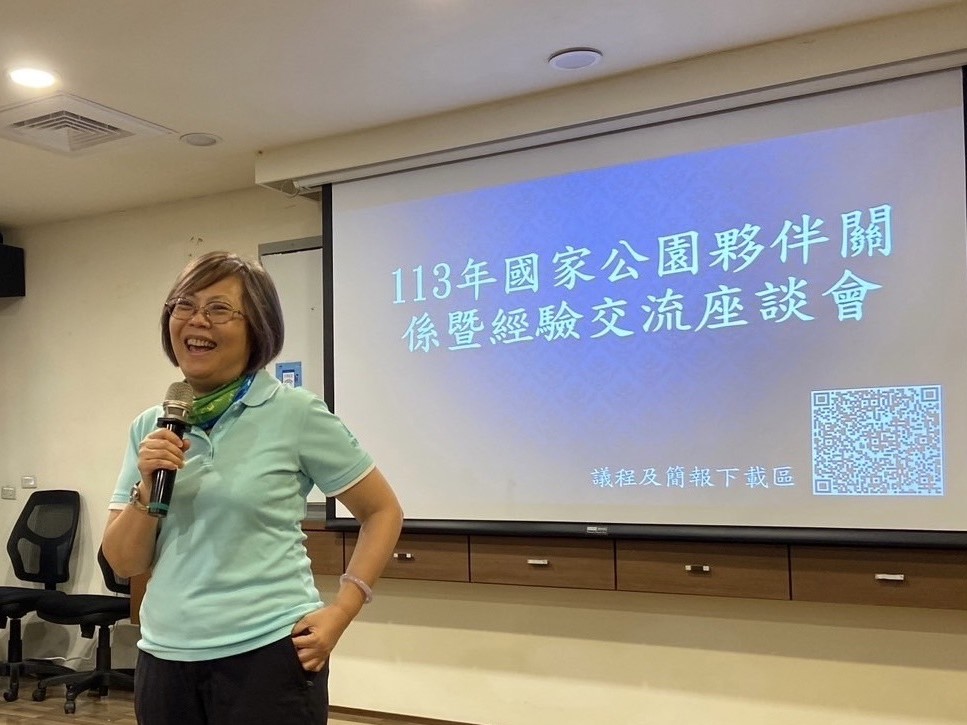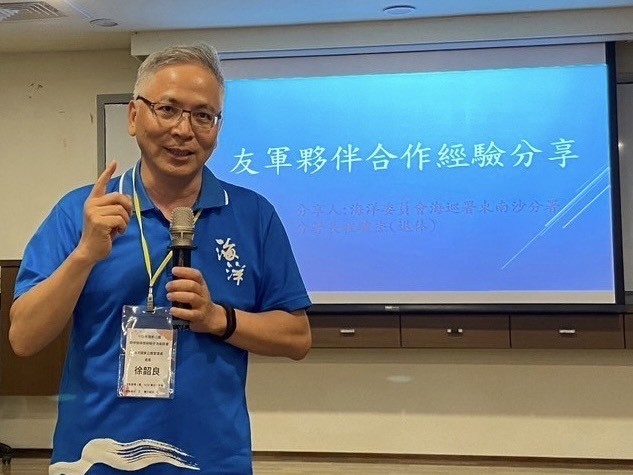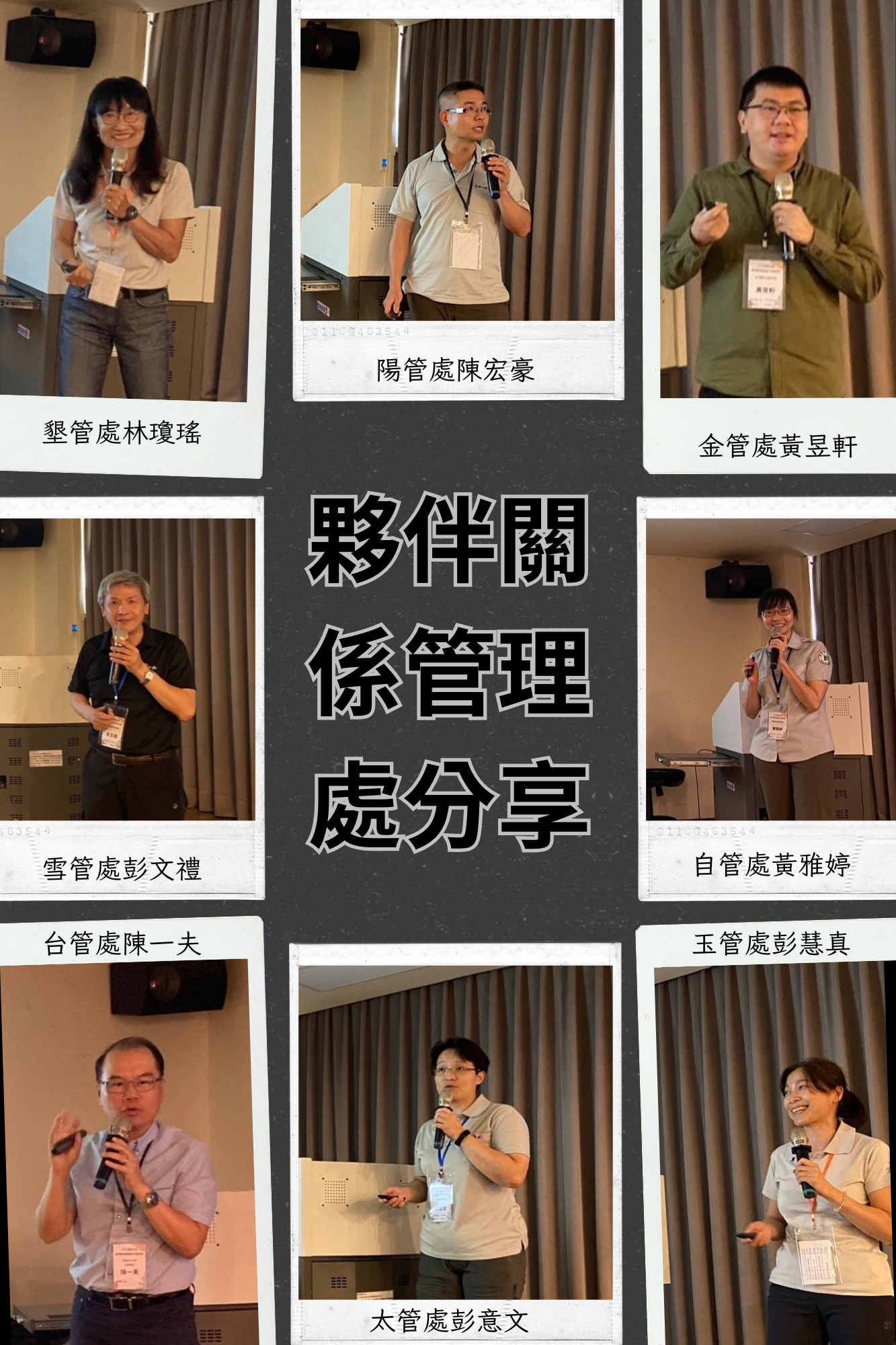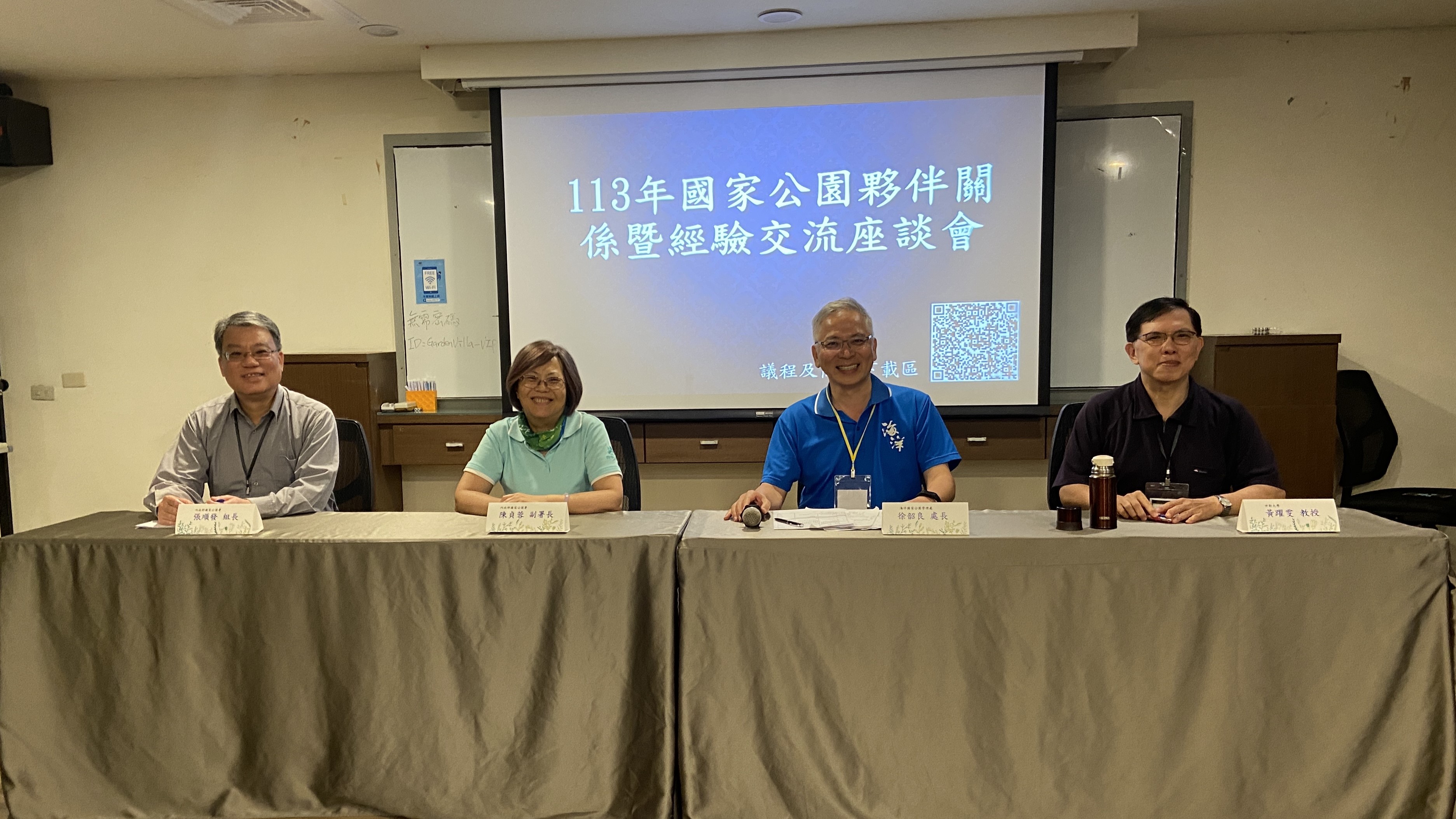National Park Service, Ministry of the Interior, held the “2024 National Park Partnership Experience Exchange Forum” today (the 19th) at the Lotus Pond Garden Villa Conference Hall in Kaohsiung. This forum gathered partners from all park management offices together and invited distinguished experts, including Professor Yue-Wen Huang from Shih Hsin University, Professor De-Yu Liao from National Sun Yat-sen University, former Director Jun-Jie Cheng from the Southeast and Nansha Branch of the Coast Guard Administration, and Executive Director Xi-Rong Huang from Taiwan Commitment Public Welfare Association. The experts shared insights on marine national park management from different perspectives, covering topics such as ecological conservation, survey and monitoring, water resources, and promoting net-zero green living initiatives. The goal was to explore diverse facets of partnership development and new values within the national park system. Deputy Director-General Chen-Jung Chen of the National Park Service highlighted that partnerships have long been a core focus in managing national parks. In the past, efforts mainly concentrated on collaborations with local communities and resident organizations. However, with the evolving needs of various national parks, the National Park Service has increasingly fostered diverse exchanges with governmental agencies, academic institutions, and other organizations, paving the way for new partnership models to emerge.
Government agencies and schools are solid cooperation partners of national parks.
Chen-Jung Chen mentioned that this year (2024), hosted by Marine National Park Headquarters of National Park Service, the two national parks under its management—South Penghu Marine National Park and Dongsha Atoll Marine National Park—require critical support from other agencies and schools in areas such as protection, ecological surveys, environmental education, and maintenance, due to their unique resource characteristics and geographical conditions. As a result, a close cooperation model has been developed with agencies (such as the Dongsha-Nansha Branch of the Coast Guard Administration, Ocean Affair Council), schools (such as National Sun Yat-sen University, National Kaohsiung Normal University, and Jinhu Elementary School), and NGOs (such as retired special forces volunteers, Taiwan Commitment NGO, and the Thousand Mile Trail Association), working together to promote the conservation and development of national parks, demonstrating a strong and solid partnership.
Shao-Liang Hsu, Director of Marine National Park Headquarters of National Park Service, explained that the Dongsha Atoll Marine National Park has established an international marine research station in collaboration with National Sun Yat-sen University, jointly conducting ecological surveys and environmental monitoring. The park also relies on support from the Coast Guard Administration and the military to jointly handle conservation patrols and ecological restoration work, developing a "life-sharing" partnership. Meanwhile, the South Penghu Marine National Park works with National Kaohsiung Normal University to promote marine environmental education by offering national park courses to raise students' environmental awareness. Additionally, every year, the park collaborates with retired special forces volunteers, the Taiwan Commitment NGO, and Jinhu Elementary School in Tainan’s Beimen District to remove marine debris, paying tribute to the ocean. These partnerships demonstrate the close cooperation between agencies and schools in environmental conservation. Not only have these collaborations advanced research and education, but they have also actively contributed to protecting valuable natural resources, becoming a strong pillar for the national parks.
Chen-Jung Chen concluded by stating that all national (nature) parks agree that the existing partnerships should continue to serve as a foundation for further expanding the scope of ecological conservation research and enhancing the positive interaction and effectiveness of these partnerships. This will ensure that the core values of national park conservation are passed down through generations and sustainably developed. In the future, we hope to extend these partnerships internationally and expand collaborations with corporate ESG partners, creating a new win-win situation for all.


